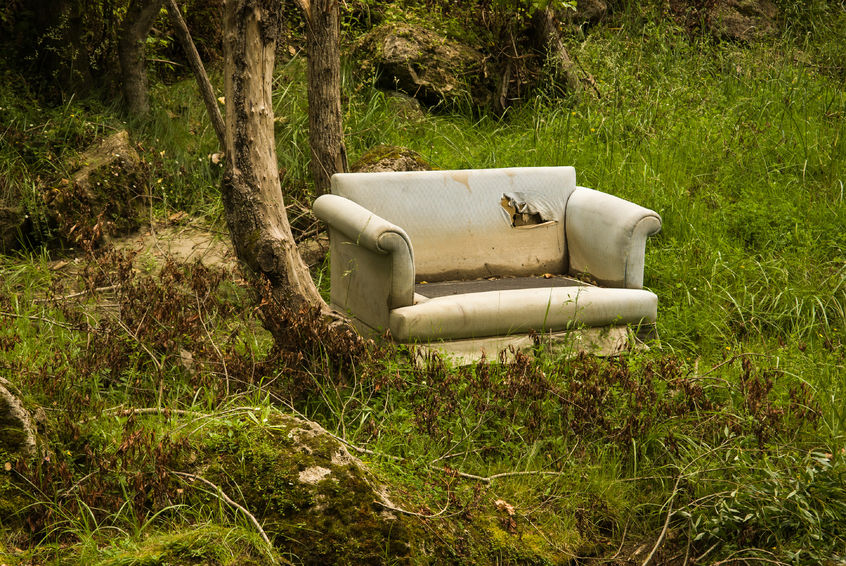
The Welsh Government has set out proposals to introduce Fixed Penalty Notices for small scale fly-tipping in Wales.
The National Farmers' Union (NFU) has previously said the British countryside is being 'blighted' by a fly-tipping epidemic and more needs to be done to prevent rubbish from ruining the UK's iconic landscape
Farming union NFU Cymru has welcomed the move by the Welsh Government, but says more must be done to stamp out the problem.
In response to the consultation, the union identified that Fixed Penalty Notices (FPNs) have the potential to be a 'fast and efficient' method to tackle crime and ensure the ‘polluter pays’.
However, to be effective the Fixed Penalty Notice needs to be significantly more than the cost of disposing of the waste legally, the union said.
'Extremely concerned'
NFU Cymru Rural Affairs Board Chairman Hedd Pugh said: “Whilst FPNs are a welcome step forwards in tackling fly-tipping, their usefulness may be undermined by the fact that there is no statutory duty on local authorities to investigate fly-tipping on private land.
“We believe that fly-tipping is a crime irrespective of where it occurs and authorities should afford the same level of priority to private land as publically owned sites.
“We remain extremely concerned that the onus of clearing the site following fly-tipping remains the responsibility of the landowner - it is grossly unfair that the cost and burden should fall on farmers who are the victims of crime.
“NFU Cymru has highlighted, through the consultation, that the receipts from Fixed Penalty Notices must be used to support farmers with the clear-up costs where the crime has occurred on farmland.”
'Diminishing public resources'
The union said the strategy to tackle fly-tipping in Wales should be considered in the context of diminishing public resources at local authority level.
Mr Pugh continued: “This is leading to closures or changes to the opening times of local recycling centres, for example, and anecdotal evidence exists to suggest that fly-tipping is increasing as a result.
“This together with the impact of increasing regulation and expense associated with legal waste disposal in Wales in the future means that fly-tipping may become an increasingly difficult issue to tackle going forward.”
The negative impacts associated with fly-tipping affect members of the farming community.
Usually, it is farmers who have to face the consequences of fly-tipping with impacts on their businesses both in terms of time and money.
There are risks to farmers’ personal safety as a result of having to dispose of waste, illegally dumped on their land from an unknown source; fly-tipping also presents a risk to farm animals, wildlife and the environment.
